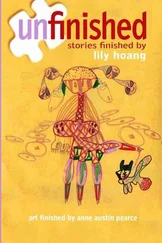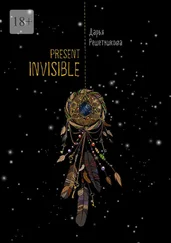Lily Hoang - Invisible Women
Здесь есть возможность читать онлайн «Lily Hoang - Invisible Women» весь текст электронной книги совершенно бесплатно (целиком полную версию без сокращений). В некоторых случаях можно слушать аудио, скачать через торрент в формате fb2 и присутствует краткое содержание. Год выпуска: 2015, Издательство: Publishing Genius Press, Жанр: Современная проза, на английском языке. Описание произведения, (предисловие) а так же отзывы посетителей доступны на портале библиотеки ЛибКат.
- Название:Invisible Women
- Автор:
- Издательство:Publishing Genius Press
- Жанр:
- Год:2015
- ISBN:нет данных
- Рейтинг книги:4 / 5. Голосов: 1
-
Избранное:Добавить в избранное
- Отзывы:
-
Ваша оценка:
- 80
- 1
- 2
- 3
- 4
- 5
Invisible Women: краткое содержание, описание и аннотация
Предлагаем к чтению аннотацию, описание, краткое содержание или предисловие (зависит от того, что написал сам автор книги «Invisible Women»). Если вы не нашли необходимую информацию о книге — напишите в комментариях, мы постараемся отыскать её.
Invisible Women — читать онлайн бесплатно полную книгу (весь текст) целиком
Ниже представлен текст книги, разбитый по страницам. Система сохранения места последней прочитанной страницы, позволяет с удобством читать онлайн бесплатно книгу «Invisible Women», без необходимости каждый раз заново искать на чём Вы остановились. Поставьте закладку, и сможете в любой момент перейти на страницу, на которой закончили чтение.
Интервал:
Закладка:
Lily Hoang
Invisible Women
~ ~ ~
Sigmund Freud does not necessarily believe everything Lou Andreas-Salome says when she describes the women she has seen in her endless expeditions, but the doctor nonetheless continues listening to this beautiful aging woman with greater attention and curiosity than he shows any other friend of his. In the lives of psychoanalysts there is a moment which follows pride in the boundless extension of the territories we have conquered, and the melancholy and relief of knowing we shall soon — if we can overcome each small barrier — know and understand the truths of the human mind, but somehow there is still a sense of emptiness that comes over us at evening, when the odor of histories and presents appears in tangible forms, mocking us with their absent information, all the integral pieces withheld from us, and if only they had the knowledge to tell us, we would have had the fullest picture, the most complete understanding, but instead, we are left with this void that comes only when the sun sets and the fear of bullets and war and defeat rise. And yet, with this emptiness comes a firm acknowledgment of all we have done, of all we have helped, those women and men destined to their banal lives of obsession, who beseech our protection, offering in exchange annual tributes of precious metals, tanned hides, and tortoise shell. It is in this desperate moment when we discover that this empire, which had seemed to us the sum of all wonders, is an endless formless ruin, that corruption’s gangrene has spread too far to be healed by our prescription, that the triumph over enemy minds has made us the heirs of their long undoing. Only in Lou Andreas’s accounts was Sigmund Freud able to discern, through the words and obsessions destined to crumble, the tracery of a pattern so subtle it could escape the termites’ gnawing.
Women & Memory 1
The woman down the hall isn’t dead, but her apartment is a mausoleum. If viewed aerially, it is clusters of polka dots. Flip it landscape and her apartment is filled with statues in her image, one for every year of her adult life. This is something she began decades ago, back when she still had dreams of being a student at some fancy art design school or another. Her creations are antipodal to originality — they’re mere facsimiles of herself — but she’s accurate. Each pore on her face is there, each vein along her leg, each thread of limping hair.
The woman down the hall never made it into art school, but if she had, her senior thesis might have been a variant of this very project. Each year, on her birthday, she buys a large block of marble or wood or clay, large enough for her to stand in, wide enough. And so she begins with a chisel, a new version of herself, life-scaled and nude. She is always nude. It takes her three-quarters of the year to complete herself, and by the time it is finished, her body has already changed. Here there is this new abrasion, that new haircut, that new sag.
Once a year, the woman down the hall invites us into her room for the unveiling of her new statue. We wind our way through all these manifestations, a garden of women, all paying some sort of homage to her, waiting for her to die so they alone can remain the original.
Women & Memory 2
The woman down the hall smears eyeliner over and around her lids, fluorescent like tropical fishies. It’s her trademark, her small way to ensure that she will float to the top of all men’s memories.
Women & Desire 2
The women down the hall are lovers. We don’t judge, but they are often loud in their affection, and they are new ones. We do not like it when their love infests our sleep, when we are roused by ghastly moans. We are so easily frightened, and by the time we distinguish pleasure from despair, we are unable to fall asleep again from too rapidly our thudding hearts. We are workers. We can’t spend our nights restless lest we become as inefficient with our time as those women down the hall.
Those women down the hall only moved in weeks ago, and already, they disrupt us all. We are not unkind here. We have tolerated many inconsiderate tenants, and we have reasoned our way with them, but those women down the hall, they don’t care about us. Those women, they are a nuisance. They arrive late in the night and their laughter festers our beds like fleas. Their joy is passionate, and their happiness is without wane.
We do not know what to do about these women down the hall. We have altered their room to be alternately frigid and searing, but they easily combatted this by removing their clothes and creating friction with their skins. We have released opossum into their room, but they roasted the flesh for sustenance, the hide for hide, the tail for strap. We are quickly resorting to more drastic measures that we are ashamed to admit, so we do not admit to them, but every night, their love slaps us awake and we are tired. We are tired beyond morality.
Women & Memory 3
Although the woman down the hall is not old, she forgets everything. Yesterday, she left her glasses in the foyer and unable to see, tumbled down two flights of stairs. She broke nearly six bones. Two weeks ago, it slipped her head to turn off her oven and her entire kitchen went ablaze. Then, poor dear, she forgot the number to the emergency fire department — nonemergency she had committed to memory, it’s true — so she dialed her pediatrician who promptly came to her rescue, not that there was much he could do to salvage the wreck of her apartment.
We ask the woman down the hall why her memory is so shoddy.
She says, “It is the way it needs to be. It is simply the way it needs to be.”
We ask her what she means.
She says, “Something, this is the better way.”
Then, she turns and retreats into the burnt hole that is her home.
Women & Desire 2
The woman down the hall is desirous. She has the appearance of all women who are at once desirous and unfulfilled. Her skin is persistently blotched with flushed hives and her pants are so tight that she moans when she walks.
Usually, she is a soft woman. She speaks and eats without opening her mouth. Every movement is delicate and graceful. She is a fallen operatic heroine.
But the woman down the hall changes twice a year. She becomes a woman who desires desire for recreation.
This woman who is generally subdued and generous, for these few days every six months is excitable and aggressive. Her accelerated speech is an extended onomatopoeia. There are no distinct words. Her gestures knock large abrasions into the wall. And her sex stinks of daffodils and pumpkin spice. It is a mixture she alone has created to catch a suitable fix. It is a technique that never fails.
For centuries, the woman down the hall has been desirous, and for centuries, she has been fulfilled. She is beautiful in her satisfaction.
Women & Signs 1
For a while, we were concerned for her, this young woman down the hall. For a while, we thought she was too much a child to live alone — she could scarcely be a nymphet, if you believe in that sort of thing, which we personally prefer not to. For a while, we brought her food and drink, cobbler and casseroles, but then we saw that she was not so innocent. She is not so young either, this girl down the hall.
One day, we saw marks on the meatiest part of her arms. The next day, we saw lines of dried blood along her wrists. The day thereafter she smiled and her front teeth held fissures.
We grabbed her by her shoulders, a place where surely she had no pain but she winced all the same the same wince of struggle and harm, and we demanded to know who had caused her such violence, such deformation. We said we would make he who hurt her hurt forever. We would damage them permanently. We promised her this, twice we avowed. We told her that she need not be frightened, that we would help her.
Читать дальшеИнтервал:
Закладка:
Похожие книги на «Invisible Women»
Представляем Вашему вниманию похожие книги на «Invisible Women» списком для выбора. Мы отобрали схожую по названию и смыслу литературу в надежде предоставить читателям больше вариантов отыскать новые, интересные, ещё непрочитанные произведения.
Обсуждение, отзывы о книге «Invisible Women» и просто собственные мнения читателей. Оставьте ваши комментарии, напишите, что Вы думаете о произведении, его смысле или главных героях. Укажите что конкретно понравилось, а что нет, и почему Вы так считаете.












